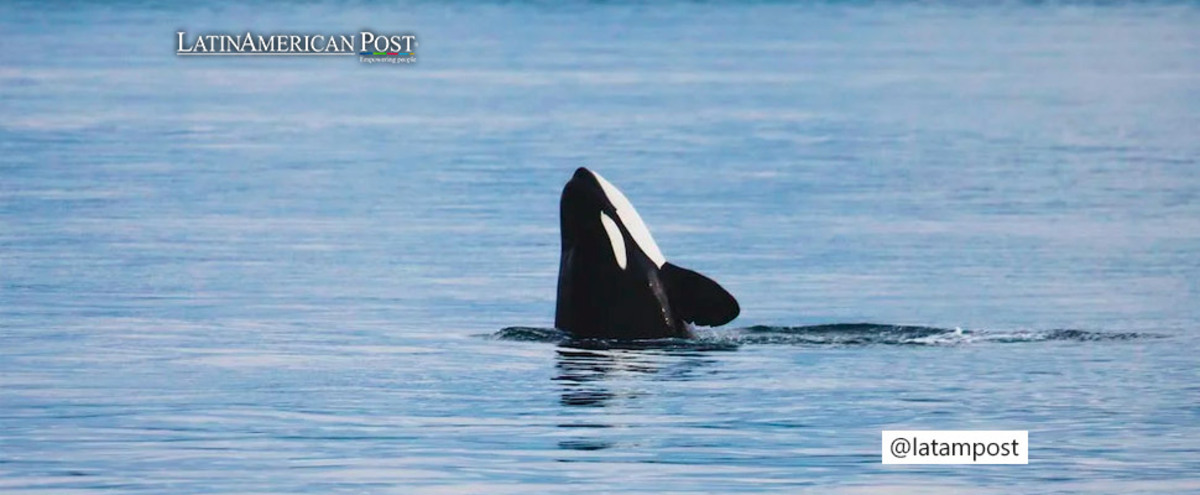Revenge or Fun? This Could be the Reason for Killer Whale Attacks on Boats in Europe
According to whale behavior scientists, whale attacks may stem from two key behaviors: revenge or amusement. We explain the hypotheses behind killer whale attacks.

Photo: Pexels
LatinAmerican Post | Christopher Ramírez
Listen to this article
Leer en español: ¿Venganza o diversión? Esta sería la razón de los ataques de orcas a embarcaciones en Europa
In recent weeks the world has watched in amazement as orca whales have launched a series of attacks on several vessels in the seas of countries such as Spain and Portugal, crossing close to a pod of the mammals.
According to the Atlantic Orca Task Force (GTOA), at least 20 whale attacks on small boats navigating the Strait of Gibraltar, located just between Europe and Africa, were reported alone at the beginning of June.
"What started as a seemingly unique encounter ended with the killer whales breaking the boat's rudder and then proceeding to rip pieces off for an hour," wrote 31-year-old April Boyes, a victim of one of these surprise attacks, on Instagram. So, what starts as a beautiful whale watch ends as an uncomfortable, dangerous, and frightening moment with the killer whales as the villains.
"Three orcas came straight towards us and started hitting the rudders. It was impressive to see the killer whales, wonderful animals, but it was also a dangerous moment for us as a team. We took the sails down and slowed the boat down as quickly as possible, and fortunately, after a few attacks, they were gone. It was a scary moment," said Jelmer van Beek, skipper of Team JAJO, another of the boats affected by the attacks.
An Act of Revenge?
Although the repeated attacks against the vessels have not resulted in significant material damage in most cases, there have been a couple of occasions when sailing vessels have ended up at the bottom of the sea.
For this reason, scientists have set to work in search of answers to what they consider strange behavior among killer whales in the Iberian area. Although there are several hypotheses on which experts have focused their attention, there is one in particular that, if true, could change the intelligence perception of these animals.
It is already known that killer whales are social beings. They seek to belong to a joint group with which to survive. However, studies suggest that these marine mammals may not only be intelligent to maintain their place in the food chain but also to live a "normal" life outside their instincts.
According to a study carried out in 2018 by Spanish scientists from the University of Gerona, orca whales may have human-like behaviors with 38 perfectly detailed personality traits such as independence, stubbornness, bravery, and sensitivity.
With the recent attacks by killer whales, scientists have brought a new possible human trait: revenge. According to experts from National Geographic and the journal Marine Mammal Science, the killer whales are reportedly targeting boats based on an alleged revenge plot by an older female to wipe out sailboats.
"When it started happening, I thought a female or her calf might have been injured by a boat's propeller or rudder because they always seem to go for the rudder. And always on sailboats," said Dan Olsen, a biologist at the Northern Gulf Oceanic Society.
The female killer whale in question was named White Gladis, and experts presume that she has created a "revenge" group involving three or four younger whales. Thus, according to some scientific hypotheses, the hatred of the older killer whale would have been transferred to the new generation, which would be seeking revenge for the alleged event against its matriarch or one of her calves.
It may interest you: UN Adopts a Global Agreement to Protect Marine Biodiversity
A fun Act?
Now, amidst the intelligence shown by killer whales, scientists have also found a need for fun, with some scientists claiming that contrary to what many think, the attacks on sailing boats may be just a game for the killer whales.
"They are attracted to the rudder because it is built to be mobile, and they found that if they push it to one side, they can make cracks in the hull, and that is what is believed to be the cause of the sinking of some of these ships," said Hanne Strager, a marine biologist and author of "The Killer Whales Journals."
For Strager, the orcas may think that moving the rudder is fun, "like kicking a ball in the grass to see what happens." However, he unsurprisingly stresses that "for people who are experiencing this on their multi-million dollar boat, it's not fun; it's not a game. It's pretty scary.
According to the researcher, the killer whales do not seem to have any intention of harming people, so after "playing" and damaging the boat, they continue on their way. "I spoke to one of the crew members of one of the boats that sank, who is also a marine biologist, and he told me that he never felt that there was aggression (…) They didn't care about people, and as soon as the boat sank, they left", the expert concluded.
Is there a Danger to Orcas?
Finally, an important point was touched upon in a report published in Marine Mammal Science, and that is how this situation could affect the killer whales themselves. According to the paper, whether the whales are attacking out of fear, revenge, or play if sustained, these events "could become a real concern" for their lives.
It is clear to scientists that no matter how strong these endangered animals are, the blows against the boats could end up hurting them, as well as the sailors' attempts to defend their boats.



